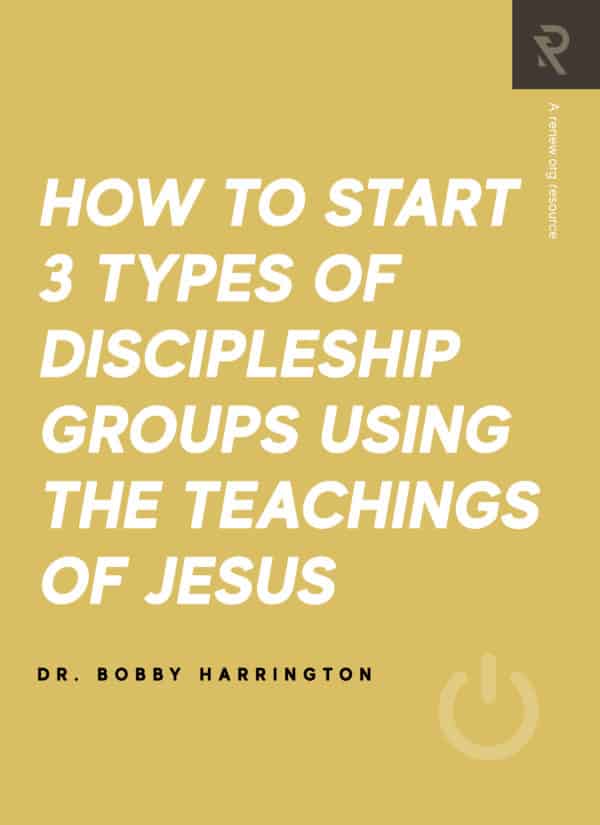59 Commands We Can’t Afford To Ignore
 Following Jesus is not a private affair. Yes, faith is personal, but it is not individualistic. It finds its fullest expression in community with other people.
Following Jesus is not a private affair. Yes, faith is personal, but it is not individualistic. It finds its fullest expression in community with other people.
That’s why the New Testament emphasizes the importance of community by using the phrase “one another” 59 times, instructing us to care for, serve, honor, bear with, and forgive each other. This community-oriented life reflects Christ’s life and is characterized by humility, hospitality, love, and grace.
As church planters, we are called to make disciples and organize those disciples into spiritual families where all the “one another” commands can be lived out. Cultivating this type of community isn’t easy, but it is essential for advancing Christ’s mission and living out the gospel in everyday life.
Many people who are attracted to a church come because they are lonely and are looking for community. Here in the US, loneliness is reaching epidemic proportions. Will your church provide new people with opportunities to build relationships with that extend beyond Sunday morning? People need that, and it is a must if your church is going to develop mature disciples who obey all the commands of Jesus. That’s why we’ve filled this month’s newsletter with resources to help you plant or lead a church that invites people into transformative relationships. Enjoy!
-Patrick Bradley, Director of Operations
Aug 2024 – Content
- Groups Strategy Template
- Starting a Discipleship Group
- Assimilation Strategy Template
- Church Planter Assessment
Groups Strategy Template

Do you have a vision for how new people in your church will build meaningful, transformative relationships with others in the church? The solution most churches offer to meet this need is some flavor of smaller groups. Small groups are great, but don’t assume that all small groups are the same. There are many ways for small groups to function and reproduce. Don’t copy and replicate the small group strategy of another church without first seeking God’s vision for how small groups will work in yours. We’ve designed our Groups Strategy Template to help you discern the vision God is giving you for small groups at your church.
Download your free copy today and start dreaming about how your church will help more people group spiritually, develop relationally, and produce more disciples of Jesus.
Starting a Discipleship Group

Are the small groups at your church accomplishing their mission? In order to answer that question, you’ll need to understand the mission. Is the goal of a small group to help people in your church connect relationally? Is the goal to help people dig into Scripture and increase their Bible knowledge? Is it to help people grow in their imitation of Jesus?
As a church planter or leader, you will decide what the goals of small groups are at your church. That goal will affect how you organize small groups, train leaders, and equip those leaders to be successful. To help you determine what types of groups you want functioning at your church, read How To Start 3 Types Of Discipleship Groups Using The Teaching Of Jesus by Bobby Harrington. It’s free, can be read in less than an hour, and will help you clarify what the type of small groups your church can cultivate and celebrate to help you make disciples of Jesus.
Assimilation Strategy Template

One common mistake church planters make is focusing on attracting new people to events and services while neglecting to help those people connect relationally. The reason is not typically due to a lack of motivation, but rather neglecting to develop a simple next steps process that helps those new people meet and building relationships with others in the church.
The fact of the matter is, if new people visit your church but don’t make friends quickly, they won’t stick around very long. Be a good steward of the people God brings to your church by developing a simple assimilation strategy that will help new people find community and others to walk with them in the direction of Jesus. Use our Assimilation Strategy Template to help you clarify what simple processes, programs, and systems you can leverage to help connect people within your church to God and each other.
Church Planter Assessment

Your focus as a church planter is not organizing attractive worship experiences. Your goal is to cultivate an ecosystem where new disciples can grow and reproduce. This work is not for the faint of heart.
If you’re sensing a call from God to plant a church, make sure to wrestle with that call before diving in. You’ll want to ensure you’re certain this is what God is calling you to do and that you’re ready to face the unique challenges of church planting ministry.
One resource we offer church planters to help them assess their readiness to plant is our Church Planter Assessment. If you sense God’s leading you to plant a church, our assessment process will help you gain a clearer understanding of your calling, gifts, passions, and weaknesses. It will also offer you clear next steps to take in order to pursue the mission God is calling you to. Our next assessment is scheduled for Oct 21st-23rd in the Washington, D.C. area. If you’re sensing God’s call to plant a church, we’d love to talk with you about what next steps you should be taking to pursue the vision God is stirring in you. Contact us now.
